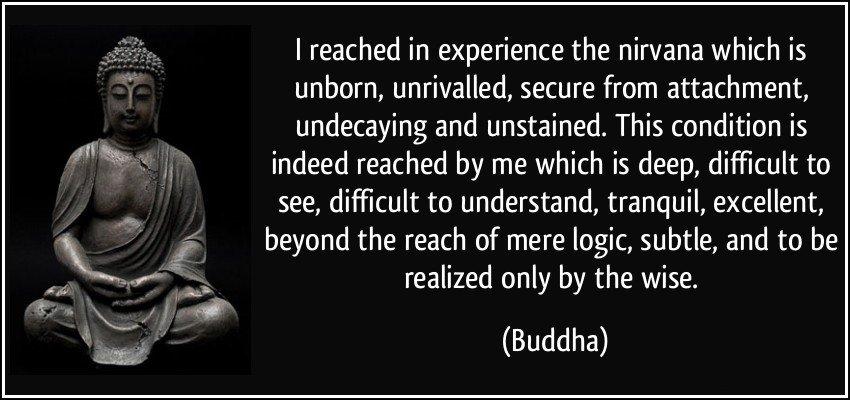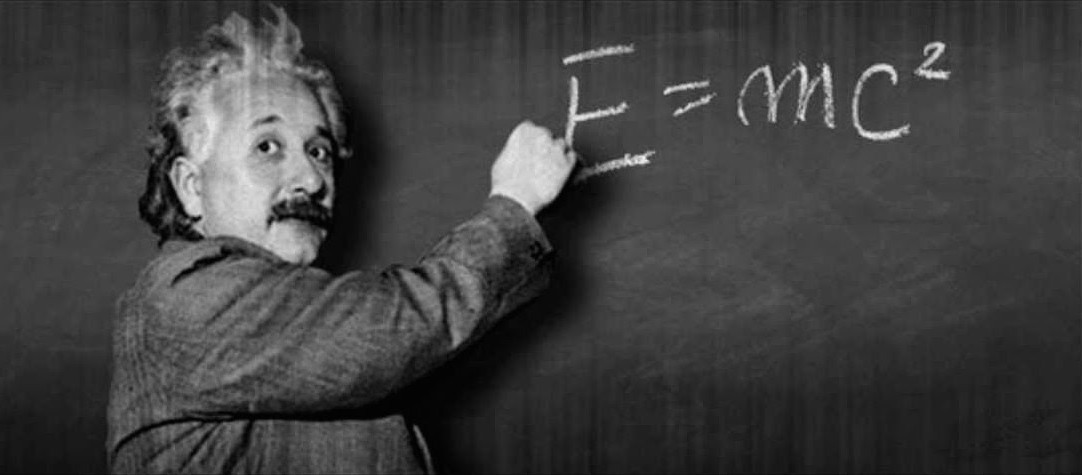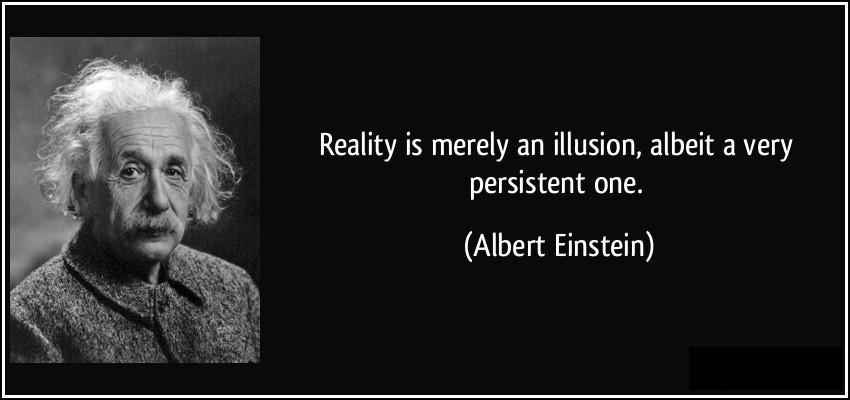Hello Friends. While this is certainly not a new question, I was wondering if some of those more accomplished in the practice than I, perhaps even one of the Venerable, could provide comment on the idea of the “deathless” and how that relates to self vs non-self. For instance, if one achieves full enlightenment, what is it that experiences it? What is it that has attained deathlessness, or is experiencing a deathless happiness? Thank you most kindly for your consideration and feedback.
I’ll just point out quickly that in the Buddhism of the EBTs, amṛta (the deathless) is not “immortality” as it may be used in other traditions. It’s a bit of a different spin, rather about the ending of re-birth — no more death because there is no more birth. That’s my understanding so far at least…
Perhaps …One who enters The Immortal Brahman could give an answer.
Death does not exist, what is dead can not exist, the word explains.
Life is what lives and what lives … just lives.
There is no "illumination
There is human sleep
There is awakening
There is the return in the natural dimension.
A blue world? Yes…
On the contrary this little universe is a little dream,
it appears yes, but it has no substance.
Think of a drop
It feels like a drop of water
But if these drops come back into the sea,
They will feel the Sea … in First Person!
This answer is clear enough - there is a mind and a body (or the five aggregates, or sense doors, if you like). However none of these can be considered as a self, or belonging to a self. In the past these phenomena weren’t self. Yet it could experience the sunset without the mind and body needing to be considered as a self.
What you had in the past could not be considered self. Yet ‘you’ experienced (or ‘there were experiences of…’) happiness or sadness.
You’re welcome! ![]()
with metta
I am not an accomplished one nor I am a venerable one. However, I will try to give what I understood…
If I have wife, son, house,… I have death (since wife, son, house are subjected to death).
If I have body and mind, I have death.
If I have nothing (including this body and mind), I have no death (or deathless).
By relinquishing all external things related to me (my wife, my son, my house,…), I have no external deaths.
By relinquishing my body and mind, I have no internal death.
Relinquishing “all” means relinquishing this “I, my” and putting them to cessation, I attained deathless. Not trying to make “wife, son, house, body, mind,…” disappear! There is no such thing as “my wife” for an accomplished one. The person (wife, son,…) may still be there - alive and healthy if there was one. There is no such thing as “she is not my wife” for an accomplished one since this implies “I” have a wife who is not that person. She is just what she is! There is no “I, my” in/of or apart from her.
What was cut off is the relation between “I” to those “objects”. Not making them (those objects) disappear! That relationship is our clinging.
This is “I, my” (or there is a self) is an extreme. This is not “I, my” (or there is no/not self) is another extreme .
Without “I, my”, I still experience the world as it is. The house is just a house. If it is beautiful - good! but it has nothing to do with me. I do not like or reject it. If I can use it without trouble - good, if not, I simply move to other place. If it is ugly - so bad! but it has nothing to do with me. If I can fix and stay with it - good. If not, I simply move on with no trouble.
Seeing the danger of possession, I never put myself anywhere. Therefore, I am just what I am, and you cannot find “me” anywhere - here or beyond, visible or invisible… However, this does not mean that you will never see “me” again (assumed that you were my friend or my relative)! What you cannot see is the “me”. It is simply that I do not see you as “my friend” or “my relative” and also I do not see you as “not my friend” or “not my relative”. You are what you are, and I am what I am! If I can help you then I will, If not then I won’t. However, even if I helped you, I am not your helper and I have no relationship with you, since to me, there is no “I” did that action! If I cannot help you then I also have no remorse whatsoever!
When there is no “I”, there is also no “you” or “other”. I am not you, but I am not apart from you. I am not a table, but I am not apart from the table! I am not form, but I am not apart from form. I am not feeling, but I am not apart from feeling,… Where can you find the “I”?
Note: Do not think that I am talking about myself! They are just examples to demonstrate the end of the “I”.
If it is said that, ’ there are sense doors ', and there is ’ something ’ behind those doors that can sense any sensations, but then, it is said that there is absolutely no ‘Self’ who feels, perhaps this statement will be confusing to most people who hear it…
What if, we use a more logical approach, for example by saying that there is indeed a ’ Self ’ who feels, but this ’ Self ’ is not something that is independent ( completely free from the Law of Cause and Effect ), and not something that is eternal ( at all free from the Law of Impermanence ), so it’s not a ‘substance’ but more like a ‘continuum’, like in the domino effect game, where we see as if, there is a constant motion energy which flowing through one domino to another, which actually the energy which passing through first domino is not the same as the energy passing through the second domino and so on…
Then what happens when the last domino has released its potential energy ?..
Could we say, that ‘motion energy’ has ‘gone’, because we no longer see the moving dominos ?.. 
Luang Por Sumedho is worth listening to when it comes to emptiness, great mind and such a Gentle Giant …
The texts say nibbana is the end of suffering because this is the only aspect we can understand, because we experience suffering. It’s like saying that to become a king is the end of poverty while it’s obviously much more. But what would a simpleton understand of royal responsibilities?
It’s funny when we with our tiny little minds try to imagine what nibbana is.
I think there may be some irony in your post, it reads as unintended. How would you know that your simile is accurate or that the nature of nibbana is hard to imagine?
I think it’s possible to construct a number of interpretations of nibbana from the suttas but one of those interpretations is particularly simple, straightforward, and reasonable. It is sometimes criticized as the “mere” destruction of defilements interpretation. There are a number of suttas that seem to strongly suggest it though. Do you think that this parsimonious theory of nibbana is untenable?
“He who has no in-dwelling sense desires,” said venerable Todeyya,
“he in whom no craving is found,
he who crossed beyond doubts,
what kind of freedom is there for him?”“He who has no in-dwelling sense desires,” said the Gracious One,
“he in whom no craving is found,
he who has crossed beyond doubts,
there is no further freedom for him.” - SuttaCentral
“Having nothing, no attachment, this is the island with nothing beyond,
this is called Nibbāna, I say, the end of old age and death.
“Sir, they speak of ‘a teaching realizable in this very life’. In what way is the teaching realizable in this very life, immediately effective, inviting inspection, relevant, so that sensible people can know it for themselves?”
“Well then, Sīvaka, I’ll ask you about this in return, and you can answer as you like. What do you think, Sīvaka? When there’s greed in you, do you understand ‘I have greed in me’? And when there’s no greed in you, do you understand ‘I have no greed in me’?” “Yes, sir.” “Since you know this, this is how the teaching is realizable in this very life, immediately effective, inviting inspection, relevant, so that sensible people can know it for themselves.
What do you think, Sīvaka? When there’s hate … delusion … greedy thoughts … hateful thoughts … When there are delusional thoughts in you, do you understand ‘I have delusional thoughts in me’? And when there are no delusional thoughts in you, do you understand ‘I have no delusional thoughts in me’?” “Yes, sir.” “Since you know this, this is how the teaching is realizable in this very life, immediately effective, inviting inspection, relevant, so that sensible people can know it for themselves.”
“Excellent, sir! Excellent! From this day forth, may the Buddha remember me as a lay follower who has gone for refuge for life.” - SuttaCentral
“Mendicants, I will teach you the unconditioned and the path that leads to the unconditioned. Listen … And what is the unconditioned? The ending of greed, hate, and delusion. This is called the unconditioned - SuttaCentral
I’ve met poor people who dream about how great life is when you’re rich. I’ve met average looking people who imagine that to be beautiful must bring immense satisfaction. Kids sit together and imagine adventures of cowboys and Indians. And idealists sit together and imagine the workings of the intangible.
Can I prove that this is accurate?
Edit:
I don’t think that this includes a ‘theory’ of nibbana at all. The quotes state that some things we are aware of now will not be present with nibbana. There is no ‘theory of a car’ when I say that putting one step after another won’t be there in driving.
If I were a reawakened in the One §: ) , I would say to you:
What are you discussing?
Why do you want to hurt yourself?
The anointed and wet from the 9th Buddha Vishnu, is here.
What problem do you have?
Read the Pali Canon,
after you descend into consciousness,
Relax
Relax
deep happy contented and strong relaxation
no contact with the body
no thoughts, no noisy, no thoughts
active consciousness but letting go
lying on the right,
a bed, a rug, a sofa, on the grass,
and only one thought of departure and restart:
I will not stop until I have reached the Absolute Truth
I will not stop even if it stops breathing
I’m not scared, I’m not afraid of dying
I have no doubt
I have no attachment to body, mind and contacts
Even if I should die, I will not be stopped, I will come to absolute Truth
Keep these words in your center of the chest.
Throw away your mask
And come back here.
Note: you will fail many times, but insisting, reading and doing: you will succeed §: )
Just my opinion……….
In Physics, the famous scientist Albert Einstein once put forward a formula which is also well known, namely :
Formula E = mc2 which shows that ‘mass’ can be converted into ‘energy’ and energy can be converted into mass.
If we think it more deeply, we will understand that the ‘change’ from mass to energy or vice versa, could only happen if…, both mass and energy do not have an ’ absolute and eternal ’ nature, but rather just have the nature of ’ illusory and impermanent '.
Because if both mass and energy possess such absolute and eternal nature, then a change from mass to energy or vice versa is impossible.
In Mahayana Buddhism, there is one famous sutra, the Prajna - paramita Hrdaya Sutra, which one part of it states :
’ Panca-skandhās tāṃś ca svābhava śūnyān paśyati sma…
rūpaṃ śūnyatā śūnyataiva rūpaṃ; rūpān na pṛthak śūnyatā śunyatāyā na pṛthag rūpaṃ; yad rūpaṃ sā śūnyatā; ya śūnyatā tad rūpaṃ. '
Which means :
‘ Form is emptiness, emptiness is form,
Emptiness is not differ from form, form is not differ from emptiness,
Whatever is form is emptiness, whatever is emptiness is form. ‘
Although this verse talks about the fundamental nature of Panca Skandha, but I consider it to have many similarities with Einstein’s E = mc2 expression, in the sense that both the five scandhas and even the whole Universe are indeed ’ empty ’ of the absolute and eternal nature, but rather just an illusory and impermanent. So, neither the universe as a whole nor living creatures have an ’ absolute, unchanging and eternal core parts ', there is only more like a continuum or a flow which could change from time to time…
Thank you…
Niels Bohr was Albert Einstein’s colleague, physicist who made foundational contributions to understanding atomic structure and quantum theory…

Yes, it seems like everything is conditional and transient, and that this is true at all scales, including the personal scale.
Agree…, so everything is ’ empty ’ not in the sense that everything is ’ nothingness ', because emptiness is differ to nothingness, but as you say it, that everything is conditional and transient… 
and not what it appears to be…
metta
Awesome! Thank you!






